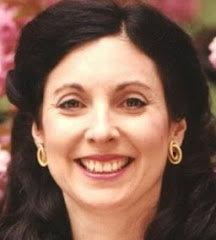This week’s Torah portion is Lech Lecha, or, go for yourself, in which Abraham, whose name is still Abram, receives the call from God to leave his family and go forth from his native land to a land God promises to show him. He is told he will be greatly blessed with land, fame, and descendants, and that God will bless his friends and curse his enemies. This portion shows, in a series of incidents, how God teaches Abraham. There is a midrash that the sages like to quote, “Abraham knew the Torah before it was given.” I’ve seen this in more than 3 sources. I think Abraham must have been a very good and moral person to begin with; however we see Abraham being educated slowly, as well, in this portion.
First there is a famine. Abraham asks Sarah to say she is his sister, so that he will not be killed. As the custom was to seize the beautiful wife and kill the husband, she agrees, but Sarah is taken into Pharaoh’s harem, a terrible turn of events. If Abraham had trusted that God would curse his enemies and protect him, would he have needed to lie? Would he have put Sarah in danger? We don’t’ know. God sends an illness to Pharaoh’s household so that no one feels well enough to have sexual relations, and Abraham leaves with Sarah unscathed and great wealth, the payment in a sense, given to Abraham by Pharaoh when he seized Sarah. God has taught Abraham that God will keep the promises of blessing and protection.
Then comes another test: there is a war of 4 chieftains fighting 5 chieftains. Lot, Abraham’s nephew is captured; so Abraham enters the war to get him back. Abraham is successful, and after the war is over, the victorious kings assemble to divide the spoils of war. What happens is strange; and we know that the sages taught that there are no coincidences. God arranges for a man named Malchizedek, whose name means righteous king, to be present. Malchizedek is described as a priest of God the most high,” who lives in Jerusalem. As they are about to divide the spoils, Malchizedek brings out bread and wine, which has become our Jewish custom, perhaps an ancient pagan custom, but also perhaps something Abraham picked up from this non-Jewish priest. He then blesses Abraham.
It is strange because we are not told that Malchizedek blessed the other chieftains. He is fixated on Abraham; and then he says, Blessed is Abraham of God the Most High, the owner of heaven and earth, and blessed is God the Most High, who has delivered you foes into your hand. (Gen. 14:18).” It is almost as if Malchizedek is a plant, put there by God just for Abraham. What is Malchizedek teaching Abraham here? He reminds Abraham by stressing that God owns everything, that all the wealth belongs to God: in other words, the spoils of war don’t really belong to you or to the others. Malchizedek then reminds Abraham that God has given them the victory, not their own strength or military prowess. The Sages in Pirkei Avot famously said, “Who is wise, the one who learns from every person.”
The support that Malchizedek gives Abraham is just what Abraham needs at this very moment, to be able to do the right thing. Abraham gives a 10 % donation to this priest, another monotheist, and then he gives up all the spoils, the wealth he might have taken, and by the customs of the time, that he was entitled to, as war at that time was a money making proposition; kind of like investing in junk bonds: you may win big or you may lose big. Abraham then explains that it will be God who makes him rich.
This portion shows us that God teaches us through tests, and also by making sure that we are supported when we have to make an important decision, so that we will do the right thing. Abraham repeats what Malchizedek said, that God owns everything, and repeats the word for tithe, from the root, 10, esser, becoming fixated on the teaching that our money and also our time and our life’s energy really belong to God. If Malchizedek had not been there and said what he said, might Abraham have been tempted to take some of the wealth? Would he have invoked God’s name and Presence at that time? We don’t know.
What is clear is that God supported Abraham with Malchizedek’s presence and words, helping him to become an even greater blessing. May we realize that we are being tested and also supported in our lives and tests; that our time and energy and also our money really belong to God, and may we eagerly embrace God’s support and precious teachings, so that, like Abraham, we will be a very great blessing.
Subscribe to:
Post Comments (Atom)

No comments:
Post a Comment